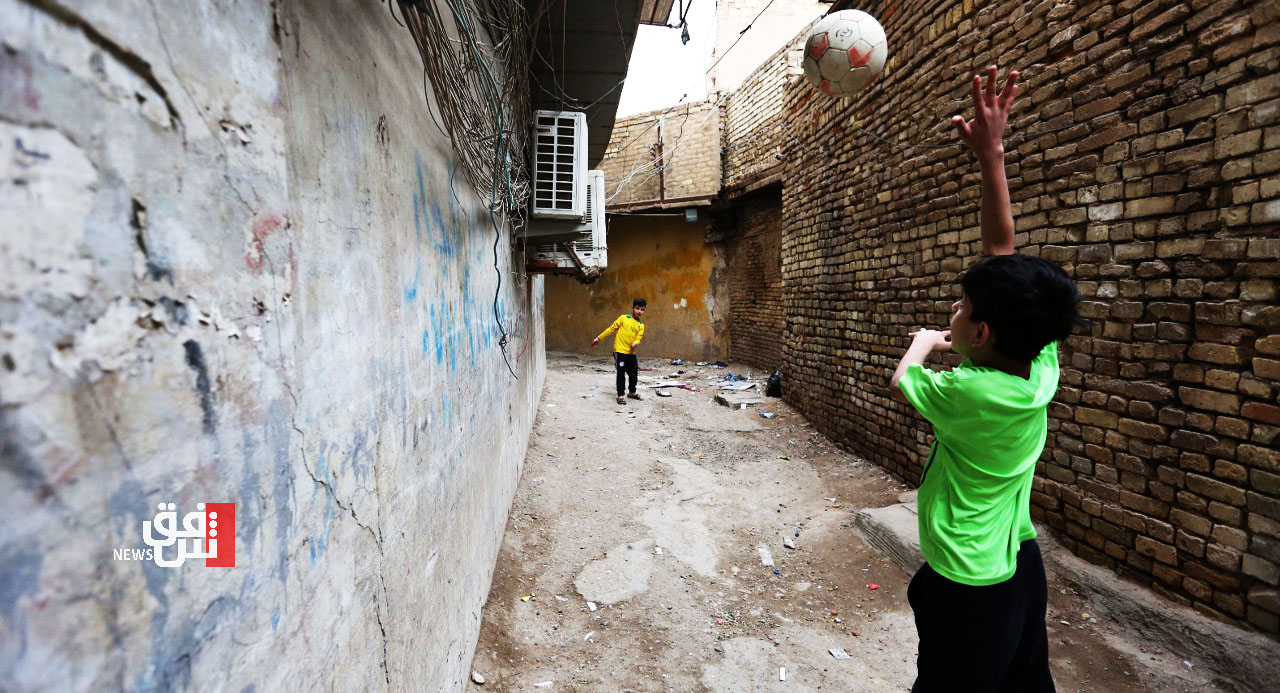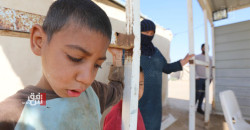From Children to breadwinners: how to tackle child labor in Iraq?

Shafaq News / Due to the country's poor economic situation and lack of employment opportunities, many Iraqi children are obligated to work to support their impoverished families. However, since child labor is typically rigorous work that is not appropriate for children, experts confirm that it causes physical and psychological harm, and might impact the child's life forever.
The three stages of childhood (early, middle, and late) end at the age of 12, but it is generally agreed that childhood is defined as the ages before 18. According to Dr. Qassem Hussein, founder, and president of the Iraqi Psychological Society, "human life after childhood is only a reflection of the influences he experienced during his childhood."
Reasons for the prevalence of child labor
According to Hussein, "the wars from 1991 to 2003, and the accompanying economic blockade that resulted in the spread of poverty until it reached 13 million destitute people, as recognized by the Ministry of Planning, in addition to the social culture that encourages children to work to help their families earn a living, played the primary role behind the prevalence of child labor in Iraq."
He continued, "The damage brought on by the phenomenon of child labor can be divided into four categories: physical, psychological, social, and cultural. The psychological aspect is represented by the child being forced to carry heavy weights that are out of proportion to his body size. Additionally, regarding the psychological aspect, children are subject to pressures and insults."
The head of the Iraqi Psychological Society proposed a series of measures to control the spread of child labor, "starting first with social justice and distributing the country's wealth to citizens, in addition to increasing cultural awareness and warning parents of the danger of child labor and its repercussions, unlike if they were sent to school, as well as the national duty of the government and its commitment to international laws that prohibit child labor."
The United Nations International Children's Emergency Fund (UNICEF) has previously estimated that roughly one million children are working in Iraq, and the Ministry of Labor and Social Affairs has verified that there are no statistics that correctly capture the scope of the issue.
Um Amir, a citizen from Diwaniyah governorate, said that her 12-year-old son goes after his school to work in a carpentry shop with his relatives, adding, "I allowed him to work because my son wanted to do so and pledged that this would not affect his studies, in addition to the fact that the workplace is safe and under the care of his relatives, so I am reassured about my son."
Um Amir urged "the government and parents to collaborate to abolish child labor, by securing the economic situation of all citizens, managing children and not tossing them in the streets to beg, which may pose them to the dangers of human traffickers, narcotics, and others."
It is noteworthy that Iraq ratified the Convention of Child Rights Law No. 5 of 1994 and the two protocols thereto in Law No. 23 of 2007.
States that have ratified the Universal Convention on the Rights of the Child, specifically Article 32-1, acknowledge that children have a right to be shielded from economic exploitation and from engaging in any work that could endanger their health or their ability to develop physically, mentally, spiritually, morally, or socially.
"Child Protection" Law
On November 6, the Iraqi Council of Representatives completed the first reading of the "Child Protection" law, which grants children their right to life and education by promoting a good generation that serves society in the future.
The most prominent articles of the law are the allocation of funds to provide a meal for primary school students, provided that this paragraph is fixed in the General Budget Law and implemented after the law is approved by the House of Representatives, according to the head of the Parliamentary Committee on Women and Children, Ibtisam al-Hilali.
Al-Hilali continued, "The second significant provision of the law provides shelters for orphaned children who require assistance, provided that these institutions are overseen by government and not international organizations."
In this context, the director of the Office of the Child Welfare Authority, Ghada al-Rafi'i, confirmed that "the Child Protection Law complements the articles on children in other Iraqi laws, and is scheduled to be read again in the coming days."
"Parliament and the government are committed to passing a robust child law that keeps pace with the international community and the UN's decisions on children's rights, while also paralleling religious determinants and the state's civic orientation."
The Human Trafficking Law stipulates that anyone who exploits a person who is unaware of his rights - such as children - is punished with imprisonment or a fine. Also, the laws of Iraq's Ministry of Labor and Social Affairs state that those who induce child labor are punished with a penalty ranging from a "fine and suspension of the permit to the employer," or even suspension of activity.
The Convention on the Rights of the Child's article 32-1 stipulates, "States Parties recognize the right of children to be protected from economic exploitation and from performing any labor likely to be damaging to the child's health or physical, mental, spiritual, moral, or social development."





